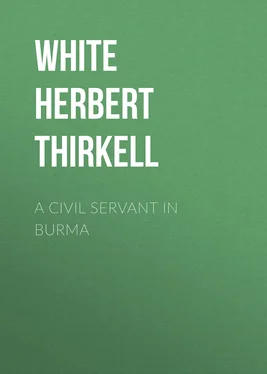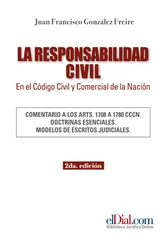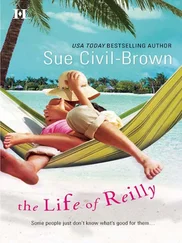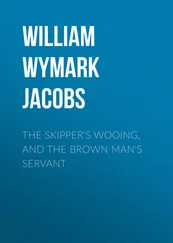Herbert White - A Civil Servant in Burma
Здесь есть возможность читать онлайн «Herbert White - A Civil Servant in Burma» — ознакомительный отрывок электронной книги совершенно бесплатно, а после прочтения отрывка купить полную версию. В некоторых случаях можно слушать аудио, скачать через торрент в формате fb2 и присутствует краткое содержание. Жанр: foreign_prose, История, foreign_edu, foreign_antique, на английском языке. Описание произведения, (предисловие) а так же отзывы посетителей доступны на портале библиотеки ЛибКат.
- Название:A Civil Servant in Burma
- Автор:
- Жанр:
- Год:неизвестен
- ISBN:нет данных
- Рейтинг книги:5 / 5. Голосов: 1
-
Избранное:Добавить в избранное
- Отзывы:
-
Ваша оценка:
- 100
- 1
- 2
- 3
- 4
- 5
A Civil Servant in Burma: краткое содержание, описание и аннотация
Предлагаем к чтению аннотацию, описание, краткое содержание или предисловие (зависит от того, что написал сам автор книги «A Civil Servant in Burma»). Если вы не нашли необходимую информацию о книге — напишите в комментариях, мы постараемся отыскать её.
A Civil Servant in Burma — читать онлайн ознакомительный отрывок
Ниже представлен текст книги, разбитый по страницам. Система сохранения места последней прочитанной страницы, позволяет с удобством читать онлайн бесплатно книгу «A Civil Servant in Burma», без необходимости каждый раз заново искать на чём Вы остановились. Поставьте закладку, и сможете в любой момент перейти на страницу, на которой закончили чтение.
Интервал:
Закладка:
The rank and file of the police were mostly Burmans, with some admixture of Indians not of a very good class. The superior officers, District and Assistant Superintendents, were men of experience, well acquainted with the people. A few military officers still remained in the civil police, Major T. Lowndes 8 8 Major-General T. Lowndes, I.S.C.
being Inspector-General. Perhaps the best-known of the British officers were Messrs. Perreau, Fforde, Jameson, and Dixon, and Major C. A. Munro. The Burmese officers—inspectors and head constables—were all men who had risen from the ranks. Every one of them had to enlist as a constable and work his way upward. The system was not without merit, and was well suited to the idiosyncrasy of the Burmese race. One distinguished Talaing officer held the rank of Superintendent of Police, though without a district charge. This was Maung Shwe Kyi, who was a King on the Siamese border at Kawkareik. One of the bravest and most resolute of men, his good service was recognized by his inclusion in the first list of Companions of the Order of the Indian Empire. His son carries on the tradition of his family.
The Forest Department was in its early lusty youth vigorously directed by a single Conservator, Mr. B. Ribbentrop, 9 9 Mr. B. Ribbentrop, C.I.E.
assisted by a small but very able staff. Burmese teak had long been a staple product of great value; its care and development were the main duties of forest officers. The forest law was, and still remains, complex, logical, meticulous. I venture the humble suggestion that its exceeding obscurity may be due to the nationality of the pioneers of forest administration in India. We were taught forestry by Germans of great ability and high scientific attainments, who framed the statutes of their department as if they were metaphysical treatises. They created a great and efficient branch of the administration. But they enveloped its principles in a mist which baffles the ordinary lay intelligence, and can be pierced only by the philosophic mind, made, or at least trained, in Germany.
Supreme over all was the Chief Commissioner (then Mr. Rivers Thompson 10 10 The late Sir Augustus Rivers Thompson, K.C.S.I., Lieut.-Governor of Bengal.
), assisted by a small but capable secretariat, which worked for long hours in a small office on the Strand Road in Rangoon. The Secretary, Major C. W. Street, was a military civilian of character and ability. The Junior Secretary was Mr. R. H. Pilcher, C.S., who had been Assistant Resident in Mandalay, and was most learned in the Burmese and Shan tongues. My old friend, Mr. G. C. Kynoch, was Assistant Secretary. None of these survives.
The higher officers entrusted with the general administration, as distinct from special branches, constituted the Commission. In the Commission were included the Chief Commissioner, Judicial Commissioner, Commissioners, Deputy Commissioners, and Assistant Commissioners. It was composed of Indian civilians, officers of the Indian Staff Corps, and uncovenanted 11 11 This term, formerly in ordinary use, is now obsolete.
officers. Civilians were few in number. Burma was not considered of sufficient importance to have men assigned to it after the open competitions. Men were sent thither for their sins, either permanently or for a term of years. A Chief Commissioner’s wife is said to have told one of these young men that other Provinces sent their worst men to Burma. However this may be, no doubt Burma was regarded as a place of banishment, a dismal rice-swamp (or, as was once said, a howling paddy 12 12 Paddy is the local name for unhusked rice.
-plain), where the sun never shone. I remember, while still in London, the commiseration expressed with one of our seniors whose deportation to this dreary land was announced. All this was fiction, falser than the Roman’s conception of Britain. I found Burma a bright and pleasant land, green and forest-clad, with a climate healthier on the whole than the average climate of Indian plains; its people singularly human, cheerful, and sympathetic; its officers of all ranks companionable and friendly. My own considered opinion is that, in many respects, Burma was one of the best provinces for a public servant. It is true that, at first, with only British or Lower Burma open to us, with but little variety of climate, we were rather cribbed and confined. The rains, lasting from May to October, began to pall about the middle of August. Fungus growth on boots was displeasing. The Province was (it still is) expensive, and promotion was slow. It took Sir Harvey Adamson and myself, who were contemporaries, over seven years to get a step of substantive rank. But there were compensations in the lightness of the work (except in the Secretariat), in the charm and attractiveness of the people, in the excellent good-fellowship of our brother-officers, in the hope that before long we should be in Mandalay, and that united Burma would give ample scope and opportunity. Burmese cheroots, too, cost only eightpence a hundred.
Among the military civilians were men of conspicuous ability, trained in the school of Sir Arthur Phayre, whose name is still reverenced throughout Burma, and who stands in the first class of Indian statesmen and administrators. Many of them had taken an active part in the pacification of Pegu after the Second War, and were thoroughly familiar with the Province and its people, their language and customs. I yield to none in high appreciation of the men of my own Service. They have done as good work in Burma, and have got as near to the people, as any men in India. But military civilians also have maintained to this day an honourable record, and have furnished to the Commission many valuable officers. I was just too late to know Colonel David Brown (Brown-gyi 13 13 Gyi , great.
), whose memory still lives in the Province. Colonel Horace Browne, 14 14 Major-General Horace Browne, I.S.C.
Colonel A. G. Duff, Captain C. H. E. Adamson, 15 15 Colonel C. H. E. Adamson, C.I.E.
Colonel W. C. Plant, are among the notable soldier-civilians of my early service. Other officers, afterwards well-known, were Mr. de Courcy Ireland, the first officer of his Service in India to become a commissioner; Mr. A. H. Hildebrand, 16 16 Mr. A. H. Hildebrand, C.I.E.
the first Superintendent of the Shan States; and Johnny Davis, of Papun, whose knowledge of Burma and the Burmese was unique. When I joined, all the divisions were in charge of military officers, and with one or two exceptions, military and uncovenanted officers ruled every district.
In 1878 there was one line of railway, 160 miles in length, from Rangoon to Prome on the Irrawaddy. To and from Toungoo, a station on the Burmese frontier, the journey had to be made by way of the Sittang River, and occupied about a fortnight. Once upon a time, a man started from Toungoo with a friend. They travelled in separate boats, in one of which was stored all the provisions for the voyage. The commissariat boat started first, and my man never saw his friend again till he reached Rangoon. For a fortnight he had to subsist on such scanty fare as he could pick up on the river-bank. When I saw him soon afterwards, he was perceptibly thinner and still full of wrath. Toungoo is now on the Mandalay line, and is reached in a few hours. There are 1,529 miles of railways in Burma; lines to Mandalay, to Myit-kyi-na in the extreme north, to Alôn on the Chindwin, to Moulmein, one of our ports, to Lashio in the Northern Shan States, in mid-air on the way to China, to Bassein and Henzada in the Delta. The sea-borne trade has made immense progress. In 1878 it was valued at £15,684,920; in 1911 at nearly £43,000,000.
The garrison consisted of two battalions of British infantry, one of which gave a detachment to the Andamans, five Madras regiments, and five batteries of artillery. Troops were stationed at Rangoon, on the frontier at Toungoo and Thayet-myo, and at Moulmein. There were no troops in Arakan. There were no military police. The Province was in a state of profound peace, though there were occasional dacoities on the borders, and, as always, Tharrawaddy had a bad name.
Читать дальшеИнтервал:
Закладка:
Похожие книги на «A Civil Servant in Burma»
Представляем Вашему вниманию похожие книги на «A Civil Servant in Burma» списком для выбора. Мы отобрали схожую по названию и смыслу литературу в надежде предоставить читателям больше вариантов отыскать новые, интересные, ещё непрочитанные произведения.
Обсуждение, отзывы о книге «A Civil Servant in Burma» и просто собственные мнения читателей. Оставьте ваши комментарии, напишите, что Вы думаете о произведении, его смысле или главных героях. Укажите что конкретно понравилось, а что нет, и почему Вы так считаете.












